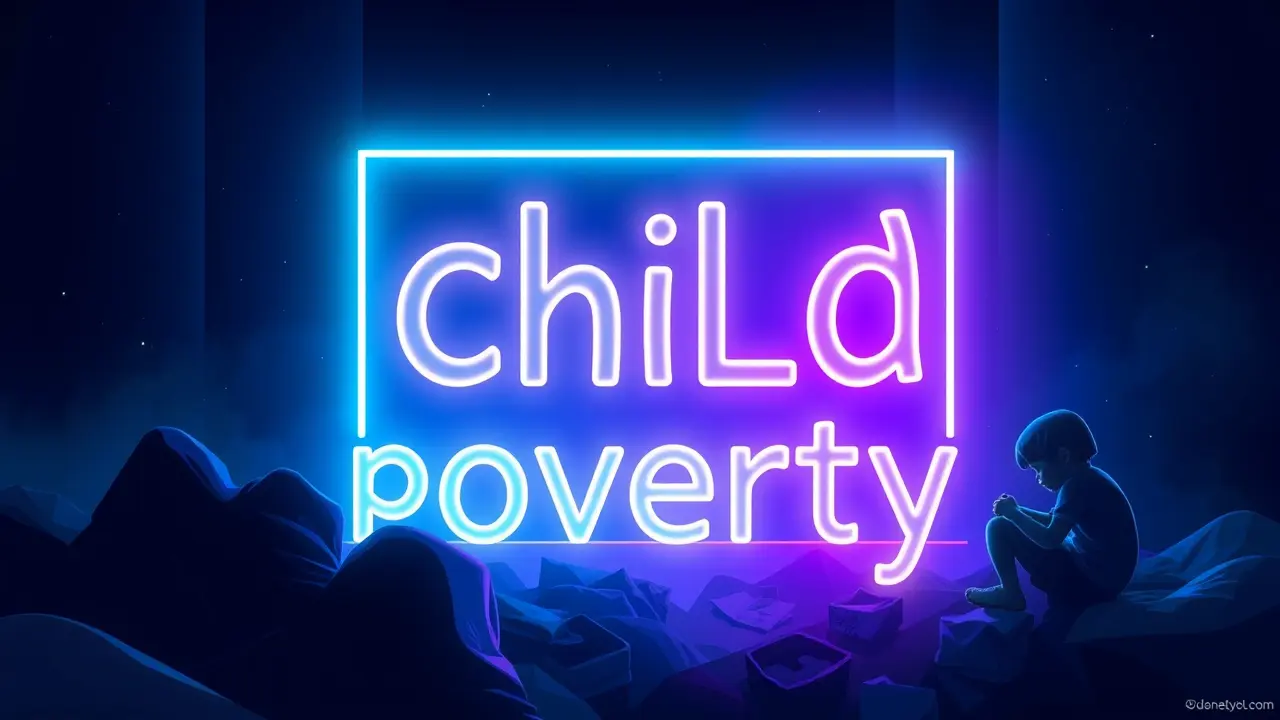- News
- protests-movements
- Charities and stars call on UK government to set child poverty reduction targets

Politicsprotests & movements
Charities and stars call on UK government to set child poverty reduction targets
AN
Anna Wright
2 days ago7 min read
The persistent spectre of child poverty in the UK has galvanised an unprecedented coalition, with celebrities, Members of Parliament, and leading children's charities uniting to demand concrete governmental action. In a powerful open letter coordinated by Big Issue founder John Bird, signatories including the National Children’s Bureau, Barnardo’s, and high-profile figures like actor Emilia Clarke, broadcaster Chris Packham, and presenter George Clarke have issued a stark ultimatum to the government: set binding, measurable targets for reducing child poverty.This collective action signals a critical juncture in a long-standing battle, framing the government’s current reluctance not as fiscal prudence but as a profound moral failure that has, in their words, 'rung alarm bells' across the nation. The letter’s strategic timing and diverse signatory list reflect a sophisticated understanding of modern political pressure, leveraging both grassroots credibility and the amplified voice of celebrity to force the issue into the mainstream discourse.Historically, the UK has seen such targets before; the Child Poverty Act of 2010, a landmark piece of legislation under the last Labour government, established legally binding goals that were subsequently dismantled and replaced with softer measures in 2016. This historical precedent looms large over the current debate, highlighting a cyclical pattern of ambition and retreat in social policy.Experts from the Institute for Fiscal Studies have consistently documented the corrosive impact of austerity measures and welfare reforms, which have pushed child poverty rates to alarming levels, particularly in single-parent households and families with more than two children. The consequences of inaction are not abstract; they manifest in overcrowded housing, food insecurity, and the devastating 'attainment gap' in schools, where a child's postcode becomes a stronger predictor of their future than their innate potential.From a feminist policy perspective, this issue is intrinsically linked to the economic precarity of mothers, who disproportionately bear the burden of low-paid, insecure work and soaring childcare costs. The government’s stance, often defended with rhetoric of 'fiscal responsibility' and 'long-term economic plans,' is being systematically challenged by this coalition as a short-sighted strategy that stores up greater social and economic costs for the future, from strained NHS services to reduced national productivity.The personal narratives brought forward by figures like Clarke, who has spoken of her own family's struggles, add a crucial human dimension to the cold statistics, making the crisis tangible for a public often numbed by data. This is not merely a policy disagreement but a fundamental clash of visions for British society: one that accepts a segment of its youth growing up in deprivation, and another that views every child's potential as a national asset to be nurtured. The government's response, or lack thereof, to this concerted pressure will be a defining test of its commitment to social justice and its willingness to be held accountable for the lived experiences of its youngest and most vulnerable citizens.
#child poverty
#charities
#UK government
#open letter
#Emilia Clarke
#featured
Stay Informed. Act Smarter.
Get weekly highlights, major headlines, and expert insights — then put your knowledge to work in our live prediction markets.
Comments
It’s quiet here...Start the conversation by leaving the first comment.
© 2025 Outpoll Service LTD. All rights reserved.